-
Posts
12176 -
Joined
-
Last visited
-
Days Won
536
Content Type
Profiles
Forums
Events
Posts posted by Fiery
-
-
I wouldn't worry too much about those idle temperatures. Of course there may be a bit of room for improvement if you could improve the air flow of your system case. E.g. install a rear exhaust fan, and/or have a CPU cooler that blows air straight into the rear exhaust. I personally am not a huge fan of side mounted CPU fans

-
Please try to replace /SAFE with /SAFEST. Let me know if it helps.
Thanks,
Fiery
-
Please upgrade to the latest beta version of AIDA64 Extreme Edition available at:
http://www.aida64.com/downloads/aida64extremebuild2036mxyv0c7zkwzip
After upgrading to this new version, make sure to restart Windows to finalize the upgrade.
Let me know how it works.
-
Thank you for the info, we've added those O&O software licenses to AIDA64, and fixed the 64-bit Windows issues. Make sure to upgrade to the latest beta version of AIDA64 Extreme Edition available at:
http://www.aida64.com/downloads/aida64extremebuild2036mxyv0c7zkwzip
After upgrading to this new version, make sure to restart Windows to finalize the upgrade.
Regards,
Fiery
-
We've implemented the changes you requested. Make sure to upgrade to the latest beta version of AIDA64 Extreme Edition available at:
http://www.aida64.com/downloads/aida64extremebuild2036mxyv0c7zkwzip
After upgrading to this new version, make sure to restart Windows to finalize the upgrade.
Regards,
Fiery
-
Cca. 70 Celsius is a bit high for core temperature, but not critical. You can check the maximum working temperature (TJMax) on the Motherboard / CPUID page in AIDA64.
Regards,
Fiery
-
Thank you for the feedback

-
 1
1
-
-
What GTX670 and GTX680 cards can measure is not an absolute Wattage value, but rather a "Percentage of TDP" value that is not really easy to fit into the existing hardware monitoring module of AIDA64. We'll work on it though

-
First of all, please upgrade to the latest beta version of AIDA64 Extreme Edition available at:
http://www.aida64.com/downloads/aida64extremebuild2029bcq0xs8flwzip
After upgrading to this new version, make sure to restart Windows to finalize the upgrade.
Then please right-click on the bottom status bar of AIDA64 main window --> Disk Debug --> Disk Controllers Dump. Copy-paste the full results into this topic.
Then right-click on the bottom status bar of AIDA64 main window --> Disk Debug --> RAID Dump. Copy-paste the full results into this topic.
Thanks,
Fiery
-
I'm sorry, but having a very small gauge size plus a different style where red colour would be at the low end of the scale is not something we'd want to do at this time -- unless we get more user requests on the same idea

-
100 MB/sec is very low difference on modern processors.
-
I think we've figured out what the reason behind the C-State anomaly. Apparently Intel Turbo Boost only considers a core sleeping (inactive) when it enters either the C3 or C6 state:
http://download.inte...nots/320354.pdf
(Check 3.3 and 3.4 in the PDF)
Hence, if you disable C-States (C3 and C6), Turbo Boost will work less efficiently. And that effectively means that single-threaded performance will suffer when you disable C-States. It is reflected by AIDA64 memory benchmarks which are single-threaded benchmarks. It will not be reflected by multi-threaded benchmarks like AIDA64 CPU and FPU benchmarks -- or Sandra memory benchmarks for that matter.
BTW, if you check the measured core clock on the Cache & Memory Benchmark Panel, you may see that with C-States enabled your processor will work at a higher core clock level. On our test system (Core i7-2600 + Gigabyte Z68XP-UD3-iSSD) Turbo Boost could push the CPU up to 3.70 GHz during the memory benchmarks when C-States were enabled, but it managed to push the CPU up to only 3.50 GHz with C-States disabled.
-
What I meant to say was: the Gadget feature requires the Registry to pass on sensor values between AIDA64 (main application) and the Gadget. Without using the Registry it cannot work at all.
-
It's a false alarm. But if you're unsure, just let it remove the file, it's mostly not utilized.
Regards,
Fiery
-
Yes, it looks fine.
-
You can check the L3 cache performance using AIDA64 Cache & Memory Benchmark (AIDA64 / main menu / Tools / Cache & Memory Benchmark). In case your processor have L3 cache enabled, you will see it evaluated there

-
Do you have Asus AI Suite installed?
-
-
Thank you for confirming the bug fix. Hopefully Roblion would also find it stable now

-
 1
1
-
-
Thank you for the feedback

-
 1
1
-
-
Please upgrade to the latest beta version of AIDA64 Extreme Edition available at:
http://www.aida64.com/downloads/aida64extremebuild2029bcq0xs8flwzip
After upgrading to this new version, make sure to restart Windows to finalize the upgrade.
Let me know how it works.
Thanks,
Fiery
-
We've fixed the device context leakage issue. Please upgrade to the latest beta version of AIDA64 Extreme Edition available at:
http://www.aida64.com/downloads/aida64extremebuild2029bcq0xs8flwzip
After upgrading to this new version, make sure to restart Windows to finalize the upgrade.
Let me know how it works.
-
We've fixed the device context leakage issue. Please upgrade to the latest beta version of AIDA64 Extreme Edition available at:
http://www.aida64.com/downloads/aida64extremebuild2029bcq0xs8flwzip
After upgrading to this new version, make sure to restart Windows to finalize the upgrade.
Let me know how it works.
-
Reading 64Bit Keys is a BASIC-Bug of AIDA64; wont detect any O&O Software Product Key if its the 64Bit Version ... only 32Bit.
AIDA64 can only detect one O&O product license, SafeErase. Do you mean that software, or some other one by O&O?



Feature request: Show if MBR or GBT partition table is used
in General Discussion
Posted
It's actually easy to identify drives with a GPT partition table. Go to AIDA64 / Storage / Physical Drives, and check the Partition Type column. If any of the partitions are FAT, FAT32 or NTFS, then it's a classic MBR.
If it's one of these, then it's GPT:
Basic Data (this is the most common one)
EFI System
LDM Metadata
LDM Data
MS Recovery
MS Reserved
Unused
Regards,
Fiery